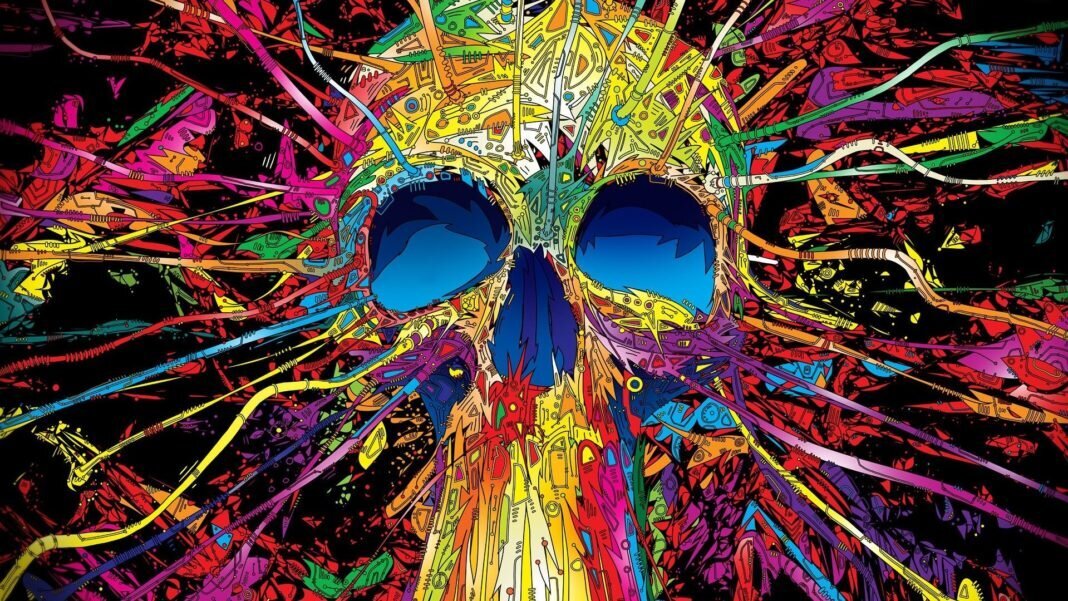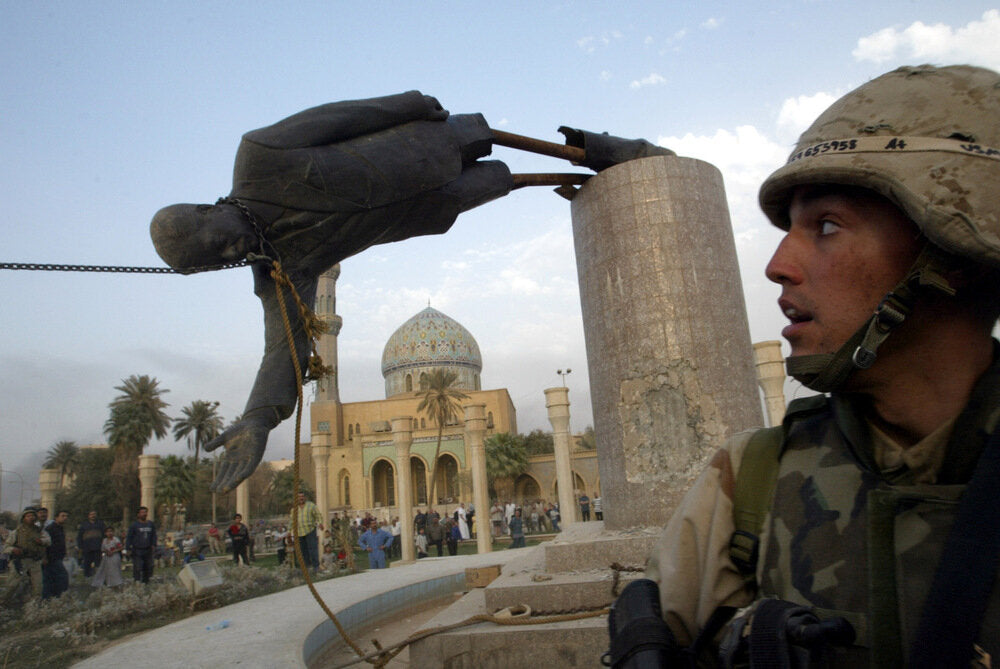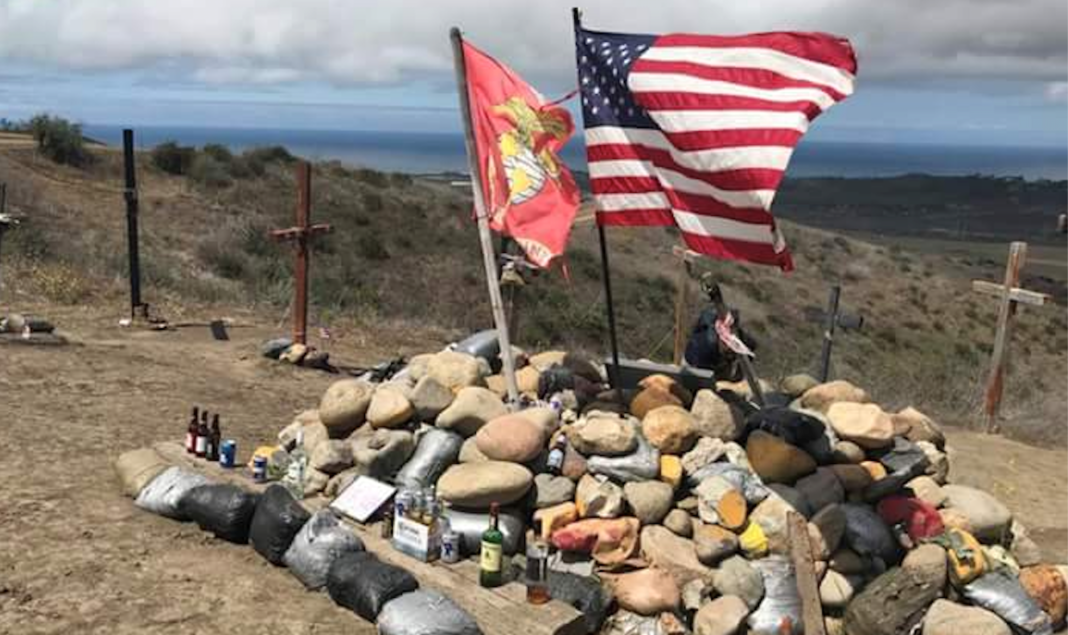
The Psychedelic Warrior
As modern warriors, it’s important we open our minds to new ideas and perspectives in order to stay one step ahead of an increasingly diverse and nebulous group of enemies and stakeholders inherent to modern warfare. And as veterans, if we are unable to open ourselves to new subcultures we risk transitioning into angry “bro-vets”, incapable of understanding new colleagues and old friends. Perhaps it's time to explore new methods and "assists" that can help us develop greater empathy - and through that empathy better understand the world around us and within.Combat leaders have evolved over the past two decades in Iraq, Afghanistan and Syria where zero defect, inflexible and dogmatic peacetime leadership styles have been outpaced by combat-tested leadership styles. Most of us know combat veterans who intuitively understand the personal challenges facing their team, are able to quickly overcome trauma to lead from the front, and have the mental flexibility to understand and outwit unconventional enemies. Ultimately, empathy is an extremely valuable tool in combat and in life. Fortunately, there's a supplement that encourages empathy. Psilocybin, the psychotropic molecule in magic mushrooms, causes a loss of feeling for self-concern, and a heightened sense of connection with the environment and your tribe. Scientists call this “ego dissolution,” and realizations made in this state can stay with you long after tripping.1I first experimented with psilocybin after 13 years of service as a Marine intelligence officer and reconnaissance man. I’d been curious about psychedelics for a while so I consulted a good friend of mine who had a few trips under his belt. A week later he stopped by my apartment with a ziplock bag full of dried, whole, bluish-gold mushrooms. Inspired by the American Indian “vision quest,” I cruised over to Catalina Island, hiked out to the middle and set up camp on a ridge looking west over the Pacific. It was cold and wet all day but in true vision quest fashion, the clouds cleared just as the sun set on my camp, opening a heavenly window to our galaxy.After 30 minutes of waiting and 30 minutes of physical discomfort, a common frequency emerged among me and everything around me. I became overwhelmed by a euphoric sense of connectedness. Thoughts and emotions seemed beyond my ability to describe verbally, but to this day I can still reflect on them with relative clarity. It was winter, so aside from the buffalo and a few curious foxes, it was just me out there. Surprisingly I never felt alone. I tuned in to a series of conversations with various aspects of my personality and my mind’s representation of various loved ones, alive and dead. Each voice respected and valued each other’s ideas. The perspective I gained that night was life-changing. It was my first authentic “spiritual” experience. Many ethnobotanists theorize that our co-evolution alongside psychoactive mushrooms is responsible for humans’ “spiritual” reaction to psilocybin, and other psychoactive plants. A couple of million years ago African forests began drying up, forcing our ancestors to spill out onto the arid savanna in search of new food sources. Here they honed their hunting skills using animal dung to locate prey and forage for new types of nourishment. Alongside the nutritious maggots squirming in their prey’s shit, they noticed a meaty organism; psilocybe cubensis, i.e. magic mushrooms. With the assistance of this new psychedelic food source, their brains doubled in size over the next two million years.2This “stoned ape hypothesis” is considered plausible among ethnobotanists and evolutionary biologists attempting to explain the extraordinary expansion in early man’s neocortex, the area of the brain that controls higher-order functions such as sensory perception, cognition, planning, self-control, and spatial reasoning. It’s also the area of the brain that is most affected by psilocybin. Larger hominin neocortexes were the genesis of tools, art, and language. Language being an especially important mechanism for cooperation within the tribe and the ability to retain and build upon new concepts. It’s fair to consider that a tribe of our ancestors with access to this powerful tool held a competitive advantage in securing more and better food sources, thus further contributing to rapid brain development. Regardless of the story’s validity, recent findings that support the hypothesis are helpful in understanding how we can benefit from using psilocybin today.
FIGURE 1

We now know, for instance, that psilocybin stimulates the central nervous system encouraging new neural connections, the growth of new neurons, (Figure 1) and a loss of self-identity coinciding with a sense of connection to the environment outside of oneself. This can mean increased empathy and creativity, and decreased fear related to past traumatic events,3 i.e. courage. All essential leadership traits.Empathy, courage, and creative thought are encouraged by psilocybin, yet western warrior culture reflexively fears it and other similar psychedelics. Fortunately, numerous studies of LSD, psilocybin and MDMA are ongoing in the U.S., Britain, Israel, and Switzerland, and a handful of others have recently concluded. While MDMA assisted treatments are further along the FDA approval process than psilocybin, it’s promising to see that the government, more specifically the Department of Veterans Affairs, is showing interest in the potential healing effects of these psychoactive substances. Several of these ongoing clinical trials are studying the effects of psilocybin on PTSD, addiction, depression and headaches. Currently, the VA hospital in New Haven Connecticut, in conjunction with Yale Medical school, is hosting one such study on psilocybin and is soliciting volunteers with cluster and migraine headaches.4While our community fears psychedelics in general, our drug of choice is alcohol. Because getting drunk with your tribe is fucking great. But alcohol also carries baggage. Reduced inhibitions can bond us and lift our mood, but can also cause us to fight each other and drive into parked cop cars two days before deployment. More importantly, alcohol can drive depression cycles to suicidal levels. So why not supplement the post-deployment alcohol binges with an occasional ritual devoted to a potentially enlightening mushroom trip? They’re less addictive and more difficult to overdose on than alcohol, by a long shot. (Figure 2) Some studies have found they can also reduce depression5 and increase virility.
FIGURE 2 - Drugs that cause most harm, The Economist, Nov 2010

Further, as Americans our egos have become a problematic domestic issue. From the far left’s “SJW’s” to the “alt-right” and every sub-tribe in between, we are at war with our nose to spite our face. I’m not a pacifist by any measure but leadership roles both in and out of the military have taught me that a little understanding goes a long way to prevent conflict and encourage cooperation at any level. You can call it hippie bullshit, or you can evolve. It’s your choice, with or without psychedelics.“How dare you encouraged non-FDA approved, illegal substances to service members and veterans in precarious mental states?!” is something I can hear some OAF fans saying. If following all the rules works for you, great. Keep it up. In fact, strict meditation practice can lead to states of consciousness similar to psilocybin-induced ones, but that can take years of practice. Nevertheless, I’ve found taking calculated, low-risk ventures outside regulations benefitted my career and my personal growth. Soldiers and vets alike need to push boundaries if we’re going to grow as a community. Do your research, start slow and put yourself in a comfortable environment with trusted members of your tribe. By no means will psychedelics solve all of our problems but I, and an increasingly growing number of medical science professionals, are finding them to be a highly useful tool that can help us develop greater empathy - and through that empathy better understand the world around us and within.- Slacker
-
Nour, Matthew M., Lisa Evans, David Nutt, and Robin L. Carhart-Harris. "Ego-Dissolution and Psychedelics: Validation of the Ego-Dissolution Inventory (EDI)." Frontiers in Human Neuroscience 10 (2016).
-
McKenna, Terence K. 1993. Food of the gods: the search for the original tree of knowledge: a radical history of plants, drugs, and human evolution. New York: Bantam Books.
-
Carhart-Harris, R. L., M. Bolstridge, C. M. J. Day, J. Rucker, R. Watts, D. E. Erritzoe, and M. Kaelen et al. 2017. "Psilocybin With Psychological Support For Treatment-Resistant Depression: Six-Month Follow-Up". Psychopharmacology 235 (2): 399-408.
-
Call (203) 932-5711, ext. 4335, for more information about participating. All calls are confidential.
-
Catlow, Briony J., Shijie Song, Daniel A. Paredes, Cheryl L. Kirstein, and Juan Sanchez-Ramos. 2013. "Effects Of Psilocybin On Hippocampal Neurogenesis And Extinction Of Trace Fear Conditioning". Experimental Brain Research 228 (4): 481-491.
Written By Slacker
May 24, 2018









